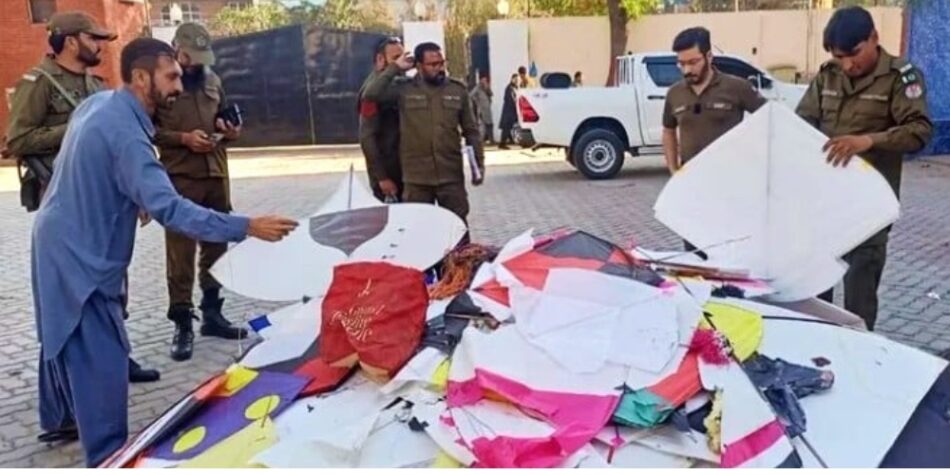Reviving Basant, a traditional festival celebrated with the start of spring, has become even less likely. New injuries in various parts of Pakistan are caused by sharp glass-coated strings used to fly kites.
The latest kite flying victim, a 22-year-old boy whose neck was sliced open while riding a bike in Faisalabad, the kite flying capital, angered netizens, who came to social media sites to vent their frustration.
The police had to initiate a crackdown against kite fliers and dealers across the province after horrifying CCTV footage of the recent graduate lying in a blood pool in the middle of the road inspired anger across the nation.
A small boy and an elderly man were killed as well by stray kite strings in Lahore and Faisalabad in March and February, respectively. Furthermore, over a dozen people, including children, sustained critical injuries within the past month.
In Pakistan, similar catastrophes over the last decades have resulted in hundreds of deaths and many injuries.
Anadolu was told by Punjab Police spokesman Syed Mubasher Hussain that Punjab Chief Minister Maryam Nawaz has directed a crackdown on anyone engaged in the purchase, sale, and production of kites and strings.
For the month before, he said, over 100,000 kites had been seized and about 3,000 people had been arrested across the province.
Ban to be enforced stricter
A traditional spring festival, Basant is observed in the Punjab provinces of Pakistan and India, with kite flying as its focal point.
Gen. Pervez Musharraf, the previous head of the armed forces, elevated basant to a global phenomenon.
Lahore was portrayed as the nation’s cultural center, and people were so fond of it that they rented out their homes’ roofs for kite-flying occasions all month.
Following the deaths of hundreds of people, the majority of them were children, it was initially outlawed in Pakistan in 2007.
2018 saw a brief lifting of the prohibition, but it was swiftly reinstated in response to multiple fatalities.
The sharp glass or metal-coated strings that are used to separate kites during kite fights are the primary cause of injury and death.
In addition, revelers buy the “looted” kites at an acceptable cost. The more kites one down, the more thanks they receive from colleagues.
Children and young boys are compelled to chase after the wrong kites by the simultaneous temptation of money and acclaim, which can often result in an explosive fight. In addition to fatal vehicular accidents and stampedes during the run, there have been violent altercations between youths defending their rights to kite landing.
According to Mian Abid, a writer specializing in crime and culture from Lahore, “there are deaths and injuries, which wash away the whole exercise,” whenever there is debate about the resuscitation of this centuries-old event, Anadolu reported.
“In given circumstances, mainly the public sentiments, there is no chance whatsoever for the revival of kite flying, at least soon.”
According to Abid, “a small chunk of overwrought” revelers have taken away a “simple but entertaining” activity for the locals.
Many fans of kite flying avoid the riskier aspects of the sport, such as the use of metal and other forbidden materials. However, they are bearing the cost of the minority’s absurdity,” he remarked.
“Instead of revival, I foresee further tightening of the noose around people who dare to fly kites.”
Persistent issue
A policeman was standing in the prayer hall of a mosque in a busy Lahore area when he issued a loudspeaker caution to parents to stop their children from flying kites.
The lives of thousands of people are currently sacrificed in this perilous game. He issued an alert saying, “Anyone found flying kites will have their parents booked.”
However, kite flying hasn’t completely disappeared despite the bans and warnings.
Manufacturers are selling kites online to evade raids and arrests, and revelers fly them at night to stay hidden.
However, others like Zulfikar Ali, a former kite-flying event organizer, reject the idea of a Basant revival. “It is now over. Nothing else has to be discussed,” he informed Anadolu.
“In this current atmosphere, there’s no point even talking about it,” Ali said.








